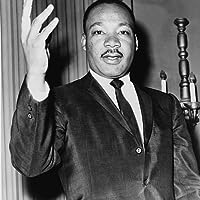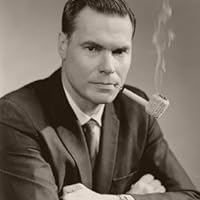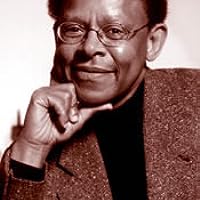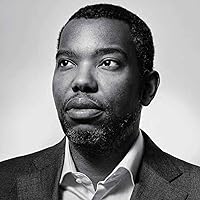Black Power Quotes
Quotes tagged as "black-power"
Showing 1-30 of 41

“In my mind, I see a line. And over that line, I see green fields and lovely flowers and beautiful white women with their arms stretched out to me over that line, but I can’t seem to get there no-how. I can't seem to get over that line.”
―
―

“One of the major dilemmas inherent in the attempt by black people to break through the cultural aspects of white imperialism is that posed by the use of historical knowledge as a weapon in our struggle. We are virtually forced into the invidious position of proving our humanity by citing historical antecedents; and yet the evidence is too often submitted to the white racists for sanction. The white man has already implanted numerous historical myths in the minds of black peoples; and those have to be uprooted . . . It is necessary to direct our historical activity in the light of two basic principles[:]
Firstly, the effort must be directed solely towards freeing and mobilising black minds. There must be no performances to impress whites, for those whites who find themselves beside us in the firing line will be there for reasons far more profound than their exposure to African history.
Secondly, the acquired knowledge of African history must be seen as directly relevant but secondary to the concrete tactics and strategy which are necessary for our liberation. There must be no false distinctions between reflection and action . . .
If there is to be any proving of our humanity it must be by revolutionary means.”
― The Groundings with My Brothers
Firstly, the effort must be directed solely towards freeing and mobilising black minds. There must be no performances to impress whites, for those whites who find themselves beside us in the firing line will be there for reasons far more profound than their exposure to African history.
Secondly, the acquired knowledge of African history must be seen as directly relevant but secondary to the concrete tactics and strategy which are necessary for our liberation. There must be no false distinctions between reflection and action . . .
If there is to be any proving of our humanity it must be by revolutionary means.”
― The Groundings with My Brothers

“Often ignored by civil rights historians, a number of campaigns led to trials and even convictions throughout the South. These cases, many virtually unknown, broke with Southern tradition and fractured the philosophical and political foundations of white supremacy by challenging the relationship between sexual domination and racial equality.”
― At the Dark End of the Street: Black Women, Rape, and Resistance--A New History of the Civil Rights Movement from Rosa Parks to the Rise of Black Power
― At the Dark End of the Street: Black Women, Rape, and Resistance--A New History of the Civil Rights Movement from Rosa Parks to the Rise of Black Power

“Let us be dissatisfied until that day when nobody will shout "White Power!" — when nobody will shout "Black Power!" — but everybody will talk about God's power and human power.”
―
―

“Well, I'm saying that your intelligence comes from the blood of my people. Whenever they trot out some smart nigger and say, "See? Look how brilliant niggers are," what they usually show you is a part-white man with some nigger blood in him. This doesn't prove that niggers are great. On the contrary; it proves that white blood can make a part-nigger more intelligent.”
―
―

“It is this fact that most whites seem to overlook: the fact that violence already exists. The Christian does not decide between violence and nonviolence, evil and good. He decides between the less and the greater evil. He must ponder whether revolutionary violence is less or more deplorable than the violence perpetuated by the system. There are no absolute rules which can decide the answer with certainty. But he must make a choice. If he decides to take the "nonviolent" way, then he is saying that revolutionary violence is more detrimental to man in the long run than systemic violence. But if the system is evil, then revolutionary violence is both justified and necessary.”
― Black Theology and Black Power
― Black Theology and Black Power

“If whites do not get off the backs of blacks, they must expect that blacks will literally throw them off by whatever means are at their disposal. This is the meaning of Black Power. Depending on the response of whites, it means that emancipation may even have to take the form of outright rebellion. No one can really say what form the oppressed must take in relieving their oppression. But if blacks are pushed to the point of unendurable pain, with no option but a violent affirmation of their own being, then violence is to be expected.”
― Black Theology and Black Power
― Black Theology and Black Power

“You better shut your big blubber lips.”
We would call each other “jungle bunnies” and “bush boogies.” We would talk about each other’s ugly, big lips and flat noses. We would call each other pickaninnies and nappy-haired so-and-so’s.
“Act your age, not your color,” we would tell each other.
“You gon thank me when I’m through with you, Ima beat you so bad, I’m gon beat the black offa you.”
Black made any insult worse. When you called somebody a “bastard,” that was bad. But when you called somebody a “Black bastard,” now that was terrible. In fact, when i was growing up, being called “Black,” period, was grounds for fighting.
“Who you callin’ Black?” we would say. We had never heard the words “Black is beautiful” and the idea had never occurred to most of us.”
― Assata: An Autobiography
We would call each other “jungle bunnies” and “bush boogies.” We would talk about each other’s ugly, big lips and flat noses. We would call each other pickaninnies and nappy-haired so-and-so’s.
“Act your age, not your color,” we would tell each other.
“You gon thank me when I’m through with you, Ima beat you so bad, I’m gon beat the black offa you.”
Black made any insult worse. When you called somebody a “bastard,” that was bad. But when you called somebody a “Black bastard,” now that was terrible. In fact, when i was growing up, being called “Black,” period, was grounds for fighting.
“Who you callin’ Black?” we would say. We had never heard the words “Black is beautiful” and the idea had never occurred to most of us.”
― Assata: An Autobiography

“As black people, our lives are not tragedies. I will keep fighting against that narrative. Our lives are survival stories that have been passed down from generation to generation. These stories are about joy and celebration and our inherent power. No-one has the capacity to steal our joy. We must resist, resist and keep resisting. We refuse to be annihilated.”
―
―
“It is, in short, the growing conviction that the Negroes cannot win—a conviction with much grounding in experience—which accounts for the new popularity of black power. So far as the ghetto Negro is concerned, this conviction expresses itself in hostility, first toward the people closest to him who have held out the most promise and failed to deliver (Martin Luther King, Roy Wilkins, etc.), then toward those who have proclaimed themselves his friends (the liberals and the labor movement), and finally toward the only oppressors he can see (the local storekeeper and the policeman on the corner). On the leadership level, the conviction that the Negroes cannot win takes other forms, principally the adoption of what I have called a "no-win" policy. Why bother with programs when their enactment results only in sham? Why concern ourselves with the image of the movement when nothing significant has been gained for all the sacrifices made by SNCC and CORE? Why compromise with reluctant white allies when nothing of consequence can be achieved anyway? Why indeed have anything to do with whites at all?
On this last point, it is extremely important for white liberals to understand what, one gathers from their references to "racism in reverse," the President and the Vice-President of the United States do not: that there is all the difference in the world between saying, "If you don't want me, I don't want you" (which is what some proponents of black power have in effect been saying), and the statement, "Whatever you do, I don't want you" (which is what racism declares). It is, in other words, both absurd and immoral to equate the despairing response of the victim with the contemptuous assertion of the oppressor. It would, moreover, be tragic if white liberals allowed verbal hostility on the part of Negroes to drive them out of the movement or to curtail their support for civil rights. The issue was injustice before black power became popular, and the issue is still injustice.”
― Down the Line: The Collected Writings of Bayard Rustin
On this last point, it is extremely important for white liberals to understand what, one gathers from their references to "racism in reverse," the President and the Vice-President of the United States do not: that there is all the difference in the world between saying, "If you don't want me, I don't want you" (which is what some proponents of black power have in effect been saying), and the statement, "Whatever you do, I don't want you" (which is what racism declares). It is, in other words, both absurd and immoral to equate the despairing response of the victim with the contemptuous assertion of the oppressor. It would, moreover, be tragic if white liberals allowed verbal hostility on the part of Negroes to drive them out of the movement or to curtail their support for civil rights. The issue was injustice before black power became popular, and the issue is still injustice.”
― Down the Line: The Collected Writings of Bayard Rustin
“No two individuals, it would seem, could be further apart politically than [Eldridge] Cleaver and [George] Wallace. Cleaver, on the one hand, embodies and articulates the rage that has gripped large segments of the black community in recent years. Born of desperation and despair, this rage has produced burnings and lootings in the ghetto as well as a philosophy of black separatism that represents more a withdrawal from an intimidating and unresponsive white society than a positive program for political action. This rage was also the source of Cleaver's influence. He could ride its powerful currents to fame and notoriety--which the mass media were more than willing to heap upon him--but he could not begin to propose a solution to the injustices that had produced it. Indeed, to assuage the anger and frustration in the black community would have threatened his own base of power.
Wallace, on the other hand, has often been called the embodiment of white racism and reaction. That he is, but, more precisely, his preeminence was a result of the fear which gripped large sections of the white community throughout the country. The Wallace movement grew to frightening proportions not because of anything that Wallace did but because the politically polarized atmosphere in the country called forth the need for a man who would represent the fears and the very worst instincts of millions of people.
While Cleaver and Wallace seem on the surface to be so very different, they are both simply the manifestations of the same social evils. Black rage and burnt-out ghettos are the product of the economic deprivation of Negro Americans; and white fear and the Wallace vote are the result of the economic scarcity that motivates whites, particularly those in the lower middle class, to feel that they must protect the little they have against the rising demands of blacks. The conditions of deprivation and scarcity, and the consequent growth of racial hostility and political polarization, formed the context within which the events of 1968 unfolded.”
― Down the Line: The Collected Writings of Bayard Rustin
Wallace, on the other hand, has often been called the embodiment of white racism and reaction. That he is, but, more precisely, his preeminence was a result of the fear which gripped large sections of the white community throughout the country. The Wallace movement grew to frightening proportions not because of anything that Wallace did but because the politically polarized atmosphere in the country called forth the need for a man who would represent the fears and the very worst instincts of millions of people.
While Cleaver and Wallace seem on the surface to be so very different, they are both simply the manifestations of the same social evils. Black rage and burnt-out ghettos are the product of the economic deprivation of Negro Americans; and white fear and the Wallace vote are the result of the economic scarcity that motivates whites, particularly those in the lower middle class, to feel that they must protect the little they have against the rising demands of blacks. The conditions of deprivation and scarcity, and the consequent growth of racial hostility and political polarization, formed the context within which the events of 1968 unfolded.”
― Down the Line: The Collected Writings of Bayard Rustin

“All too often we as a Black community allow systemic entities to do character reporting and judgment casting on protests, uprisings, our slain, and family/friends of our slain. This is all an attempt to distract the public from the injustices that got us there in the first place.”
―
―

“One unfortunate thing about Black Power is that it gives priority to race precisely at a time when the impact of automation and other forces have made the economic question fundamental for blacks and whites alike. In this context a slogan “Power for Poor People” would be much more appropriate than the slogan “Black Power.”
However much we pool our resources and “buy black,” this cannot create the multiplicity of new jobs and provide the number of low-cost houses that will lift the Negro out of the economic depression caused by centuries of deprivation. Neither can our resources supply quality integrated education. All of this requires billions of dollars which only an alliance of liberal-labor-civil-rights forces can stimulate. In short, the Negroes’ problem cannot be solved unless the whole of American society takes a new turn toward greater economic justice.”
― Where Do We Go from Here: Chaos or Community?
However much we pool our resources and “buy black,” this cannot create the multiplicity of new jobs and provide the number of low-cost houses that will lift the Negro out of the economic depression caused by centuries of deprivation. Neither can our resources supply quality integrated education. All of this requires billions of dollars which only an alliance of liberal-labor-civil-rights forces can stimulate. In short, the Negroes’ problem cannot be solved unless the whole of American society takes a new turn toward greater economic justice.”
― Where Do We Go from Here: Chaos or Community?

“In the final analysis the weakness of Black Power is its failure to see that the black man needs the white man and the white man needs the black man. However much we may try to romanticize the slogan, there is no separate black path to power and fulfillment that does not intersect white paths, and there is no separate white path to power and fulfillment, short of social disaster, that does not share that power with black aspirations for freedom and human dignity. We are bound together in a single garment of destiny. The language, the cultural patterns, the music, the material prosperity and even the food of America are an amalgam of black and white.”
― Where Do We Go from Here: Chaos or Community?
― Where Do We Go from Here: Chaos or Community?
“First you have free breakfasts, then you have free medical care, then you have free bus rides, and soon you have FREEDOM!”
―
―

“...there comes a time in every African American's life when they discover that the flag tot which you have pledged allegiance and such loyalty and not pledged allegiance and loyalty to you.”
―
―

“...there comes a time in every African American's life when they discover that the flag to which you have pledged allegiance and such loyalty and not pledged allegiance and loyalty to you.”
―
―

“...there comes a time in every African American's life when they discover that the flag to which you have pledged allegiance and such loyalty has not pledged allegiance and loyalty to you.”
―
―

“In response to the demand for more black culture and history, the national bourgeoisie of the U.S.A. has adopted a technique different from that of their neo-colonialist puppets in the West Indies. Having that security which comes from the possession of capital, they feel confident in making certain concessions to black culture in their educational institutions and media of public communications. As always, they concede the lesser demand to maintain the total structure of white capitalist domination, hoping to siphon off young blacks into a preoccupation with African history and culture divorced from the raw reality of the American system as it operates on both the domestic and international fronts. That gambit must not work. Imagine the juicy contradictions — Rockefeller finances chair on African history from the profits of exploiting South African blacks and upholding apartheid! Black revolutionaries study African culture alongside of researchers into germ warfare against the Vietnamese people!
We blacks in the Americas have missed the opportunity when a more leisurely appraisal of our past might have been possible.”
― The Groundings with My Brothers
We blacks in the Americas have missed the opportunity when a more leisurely appraisal of our past might have been possible.”
― The Groundings with My Brothers
“There is, as well, a tactical side to the new emphasis on self-defense and the suggestion that nonviolence be abandoned. The reasoning here is that turning the other cheek is not the way to win respect, and that only if the Negro succeeds in frightening the white man will the white man begin taking him seriously. The trouble with this reasoning is that it fails to recognize that fear is more likely to bring hostility to the surface than respect. Far from prodding the "white power structure" into action, the new militant leadership, by raising the slogan of black power and lowering the banner of nonviolence, has obscured the moral issue facing this nation, and permitted the President and Vice-President to lecture us about "racism in reverse" instead of proposing more meaningful programs for dealing with the problems of unemployment, housing, and education.”
― Down the Line: The Collected Writings of Bayard Rustin
― Down the Line: The Collected Writings of Bayard Rustin

“Daniel Redfern laughs, the first real laugh I've ever heard from him, and I am put out. I am much funnier than Katherine. - Jane”
― Deathless Divide
― Deathless Divide

“We were coloreds or Negroes, and to call someone black was to invite a fistfight. But Malcolm remade the menace inherent in that name into something mystical--Black Power; Black Is Beautiful; It's a black thing, you wouldn't understand.”
― We Were Eight Years in Power: An American Tragedy
― We Were Eight Years in Power: An American Tragedy

“This was why your grandparents banned Tarzan and the Lone Ranger and toys with white faces from the house. They were rebelling against the history books that spoke of black people only as sentimental "firsts"--first black five-star general, first black congressman, first black mayor--always presented in the bemused manner of a category of Trivial Pursuit.”
― Between the World and Me
― Between the World and Me
“The Puerto Rican movement of the 1960s and 1970s can be defined by its consistent calls for a radical transformation of U.S. society while simultaneously promoting the independence of Puerto Rico. Known as El Nuevo Despertar, this "New Awakening" of Puerto Rican radicalism was inspired and shaped by the growing militancy abroad and at home. Black Power, youth unrest (particularly against the Vietnam War), the War on Poverty, national liberation struggles in the Third World, Chicano and Native American militancy, gay and lesbian rights, and second-wave feminism are all part of the context that shaped the movement.”
― The Trouble with Unity: Latino Politics and the Creation of Identity
― The Trouble with Unity: Latino Politics and the Creation of Identity

“The rhetoric of black power corrupted the white left and the black left alike, substituting a politics of the media for the civil rights struggles earlier waged in deadly earnest in the South. As the black power rhetoreticians co-opted the civil rights movement, they also captivated white liberals who sought to appease the guilt associated with “white skin privilege” by adopting the gestures and language of black militancy. Both whites and blacks embraced radical style in place of radical substance.”
― The Culture of Narcissism: American Life in An Age of Diminishing Expectations
― The Culture of Narcissism: American Life in An Age of Diminishing Expectations
“I began to realize that the stability I had felt all my life was actually a mix of resignation and illusion. I had resigned myself to living a life of struggle, accepting the oppressive nature of capitalism, racism, ad patriarchy as simply the way it was. I had grown not just accustomed to oppression but comfortable with it.”
― Are We Free Yet?: The Black Queer Guide to Divorcing America
― Are We Free Yet?: The Black Queer Guide to Divorcing America

“[The undertaker] asked if [Mamie] wanted him to retouch Emmett's body and make him look a little more presentable, "No," [she] said. That was the way [she] wanted him presented. "Let the world see what I have seen.”
― The Blood of Emmett Till
― The Blood of Emmett Till
“You've always had those who have said the most important thing is saving folks' soul, but if they can't eat, they don't have a decent place to live, what good did it do you to save their souls?”
―
―
All Quotes
|
My Quotes
|
Add A Quote
Browse By Tag
- Love Quotes 97k
- Life Quotes 75.5k
- Inspirational Quotes 72.5k
- Humor Quotes 43.5k
- Philosophy Quotes 29.5k
- Inspirational Quotes Quotes 27k
- God Quotes 26k
- Truth Quotes 23.5k
- Wisdom Quotes 23.5k
- Romance Quotes 23k
- Poetry Quotes 22k
- Death Quotes 20k
- Happiness Quotes 18.5k
- Life Lessons Quotes 18.5k
- Hope Quotes 18k
- Faith Quotes 18k
- Quotes Quotes 16.5k
- Inspiration Quotes 16.5k
- Spirituality Quotes 15k
- Religion Quotes 15k
- Motivational Quotes 15k
- Writing Quotes 14.5k
- Relationships Quotes 14.5k
- Life Quotes Quotes 14k
- Love Quotes Quotes 13.5k
- Success Quotes 13.5k
- Time Quotes 12.5k
- Motivation Quotes 12k
- Science Quotes 11.5k
- Knowledge Quotes 11k


